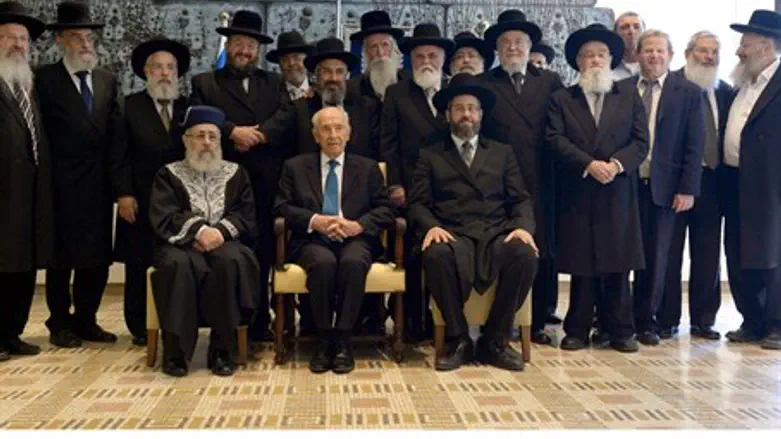
The new Chief Rabbis were at a similar ceremony at the President's Residence in August when they took their posts, a ceremony which their predecessors werenot invited to.
Peres used the ceremony to stress the Chief Rabbinate's role in unifying the nation and bridging the divide between religious and non-religious Jews.
The new marriage law, termed the "Tzohar Law," was also a hot topic. That law, which passed this week, allows couples to choose Rabbis not from their locality to marry them.
The law has been criticized by some, and Rabbi Yosef stated that it "greatly harms the ability of the Rabbinate to guard the holiness of the nation of Israel." He advocated that the Council take more initiative in presenting its own suggestions rather than waiting for laws it opposes.
Ultimately the role of the Chief Rabbinate in unifying the nation arose as a key theme. Rabbi David Lau emphasized the necessity among Jews to love and respect one another, stating that the Chief Rabbinate Council must bring this message to the public by displaying a unity of opinions and unity of hearts.
If it manages to do so, Rabbi Lau said the Jewish nation will understand and internalize that "we indeed have one G-d and are one people, with more uniting than dividing us."
Just last week Rabbi Lau made a tour of communities in southern Israel established by Jews expelled from Gush Katif in 2005.
The Rabbi said to community members there "you are meriting to establish and renew the Holy Land, and I draw strength from you," adding that the new communities prove "nothing can stop those who believe in the Torah."

Rabbi Lau, Rabbi Yosef, Peres Mark Neiman, Government Press Office
Rabbi Yosef, Rabbi Lau, Peres Mark Neiman, Government Press Office
Peres Welcomes Council Member Mark Neiman, Government Press Office